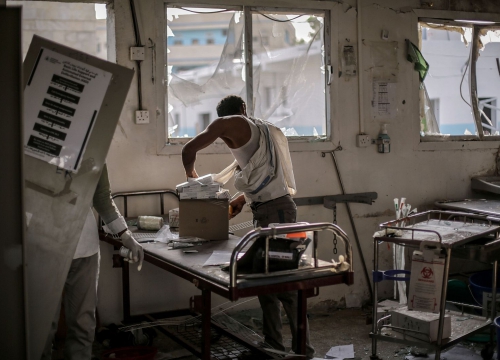Violence Against Healthcare and Humanitarian Workers
Geneva Academy Talks


MSF
Violence against health care facilities and humanitarian workers remains a recurring and preoccupying issue in today’s world.
Paradoxically, this takes place within a well-accepted framework of protection of health care facilities and medical or humanitarian personnel under international humanitarian law (IHL), which rules and principles are not contested either by states or non-state armed groups.
This IHL Talk, organized with the support of the ICRC, aims at reflecting on the reasons why health care and humanitarian workers are being targeted despite their protection under IHL and what policy tools can be elaborated to implement and ensure better respect of the law by the different parties in armed conflicts.
Moderation
Imogen Foulkes, BBC Geneva Correspondent
Panelists
Babak Ali Naraghi, Head of Health Care in Danger Project, International Committee of the Red Cross (ICRC)
Robert Kolb, Professor of Public International Law, University of Geneva and Geneva Academy
Caroline Abu-Sada, Director of the Research Unit on Humanitarian Stakes and Practices (UREPH), MSF Switzerland
About IHL Talks
The IHL Talks are a new series of events, hosted by the Geneva Academy, on international humanitarian law and current humanitarian topics. Every two months at lunchtime, academic experts, practitioners, policy makers and journalists discuss burning humanitarian issues and their regulation under international law.
Video
Violence Against Healthcare and Humanitarian Workers
Violence against health care facilities and humanitarian workers remains a recurring and preoccupying issue in today’s world.
Paradoxically, this takes place within a well-accepted framework of protection of health care facilities and medical or humanitarian personnel under international humanitarian law (IHL), which rules and principles are not contested either by states or non-state armed groups.
This IHL Talk, organized with the support of the ICRC, aimed at reflecting on the reasons why health care and humanitarian workers are being targeted despite their protection under IHL and what policy tools can be elaborated to implement and ensure better respect of the law by the different parties in armed conflicts.








